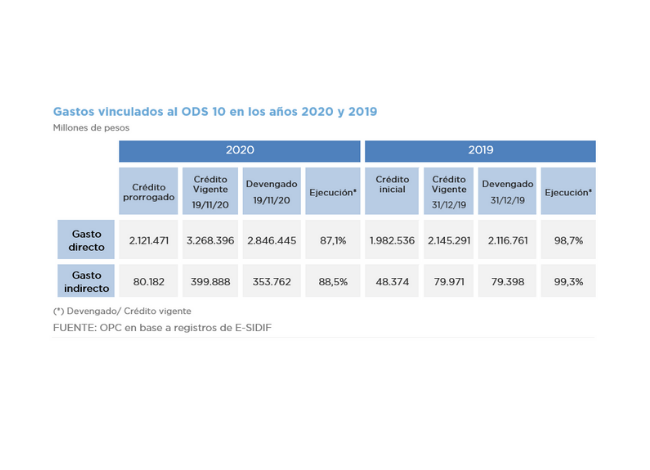SDG 10, one of the Goals set by the United Nations to which Argentina adhered, seeks to reduce inequalities within and among countries.
Argentina set four goals in relation to SDG 10: to achieve income growth for the poorest segment of the population; to promote social, economic, and political inclusion; to ensure equal opportunities; and to achieve greater income equality.
The effects of the Covid-19 pandemic and the unstable economic context prior to it, resulted in a sharp deterioration in income inequality indicators. This situation highlights the important challenges that the National government faces to achieve the commitments assumed in the 2030 Agenda.
- The income of the richest segment of the population was 13 times higher than the income of the poorest segment in 2020.
- The income gap between the richest and the poorest showed a growing trend starting in 2019, with a significant increase in 2020.
- Between 2016 and 2020, two out of ten people had an income below half the median.
- Thirty-three percent of the population reported having suffered some type of discrimination during 2013 (latest data published by the National Institute against Discrimination, Xenophobia and Racism – INADI). If new information is not produced, it will be impossible to determine the efforts to be made to meet the goal assumed by the country.
- The goal set for the Gini index for 2023 implies reaching a coefficient below the historical minimum in the last 30 years which indicates the magnitude of the challenge to be faced.
- Direct expenditure on SDG 10 totaled AR$ 2.8 trillion, and the indirect expenditure AR$ 353.7 million as of November 2020.
- The program “Potenciar Trabajo” represented the highest of the direct expenditures made by the responsible agencies.
- The National Social Security Administration (ANSES) played a key role in the expenditure aimed at improving income distribution, through the management and settlement of monetary benefits to vulnerable households and individuals.

